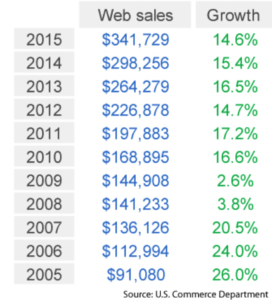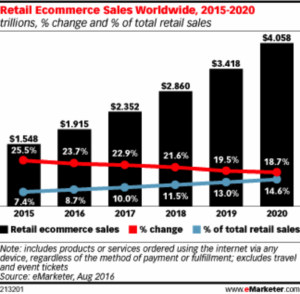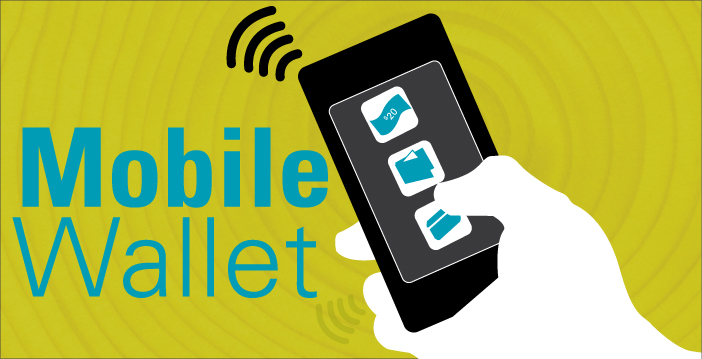The mobile wallet space is not one that you can call extremely crowded, but when you factor in the depth of the pockets of its biggest players – Apple, Samsung, Google and PayPal – you could justify calling it an overcrowded market.
One of the major reasons these companies jumped in with both feet into the digital wallet arena is the growth of online sales a.k.a the e-commerce market. But within this pool of big-money players there are two companies which we strongly believe will stay on top of the market and rule it at least for the next decade – Apple and PayPal.
Before we get into the details of why Apple Pay and PayPal’s mobile wallet stand out from the crowd, let’s take a closer look at why all of these companies are investing so much time and energy into the market in the recent years.
At the heart of it all lies the growth of e-commerce. According to Census.gov data, U.S. retail e-commerce sales for the third quarter of 2016 were $101.3 billion, while total retail sales for the third quarter of 2016 were estimated at $1,212.5 billion. That means online retail, or web sales, in the third quarter of 2016 accounted for a mere 8.4 percent of total retail volume across all channels.

The online component has been growing at double digit rates for nearly ten years in a row now, barring the time of the Great Recession, and it is still scratching the surface of the overall retail market. Retail e-commerce sales stand at less than two trillion dollars and is expected to hit $4.05 trillion by 2020, doubling its current size in a span of four years.

As of now the world is making its online payments mostly through plastic cards, simply because there aren’t any viable alternate methods other than entering your card details and the cvv number to get the payment across.
Aiming to disrupt that status quo, digital wallets provide a single, secure authentication such as Touch ID and other biometric technologies to get the job done. And they want to replace your wallets and cards with a smartphone. No need to carry multiple cards: all you need is a smartphone, which more than 60% of the people in developed nations such as United States, Canada and the United Kingdom already have. But emerging markets are quickly catching up.
According to payments processor Adyen:
“(During) Q3 this year, mobile payments increased across the globe, and now account for over 30 percent of all global online transactions, compared to 28.7 percent in Q2 this year. In Asia, 47 percent of Japanese credit card JCB were made on a mobile device. And Chinese methods Alipay and UnionPay were at 35 and 23 percent respectively.”
With emerging markets now leading the way, mobile payments are only going to accelerate from here – simply because the majority of the high-spending population of any country, be it mature or emerging – already have payment-ready devices.
With e-commerce sales also growing at a rapid pace, it will further fuel the growth of mobile payment options, and that is exactly the reason why big tech majors are jumping into the market and investing billions of dollars in this segment.
In a subsequent article, we’ll take a closer look at the leading mobile wallet providers of the world and why we think Apple and PayPal will enjoy a prolonged period of being the companies to beat in this space.
Thanks for reading our work! Please bookmark 1redDrop.com to keep tabs on the hottest, most happening tech and business news from around the world. On Apple News, please favorite the 1redDrop channel to get us in your news feed.



